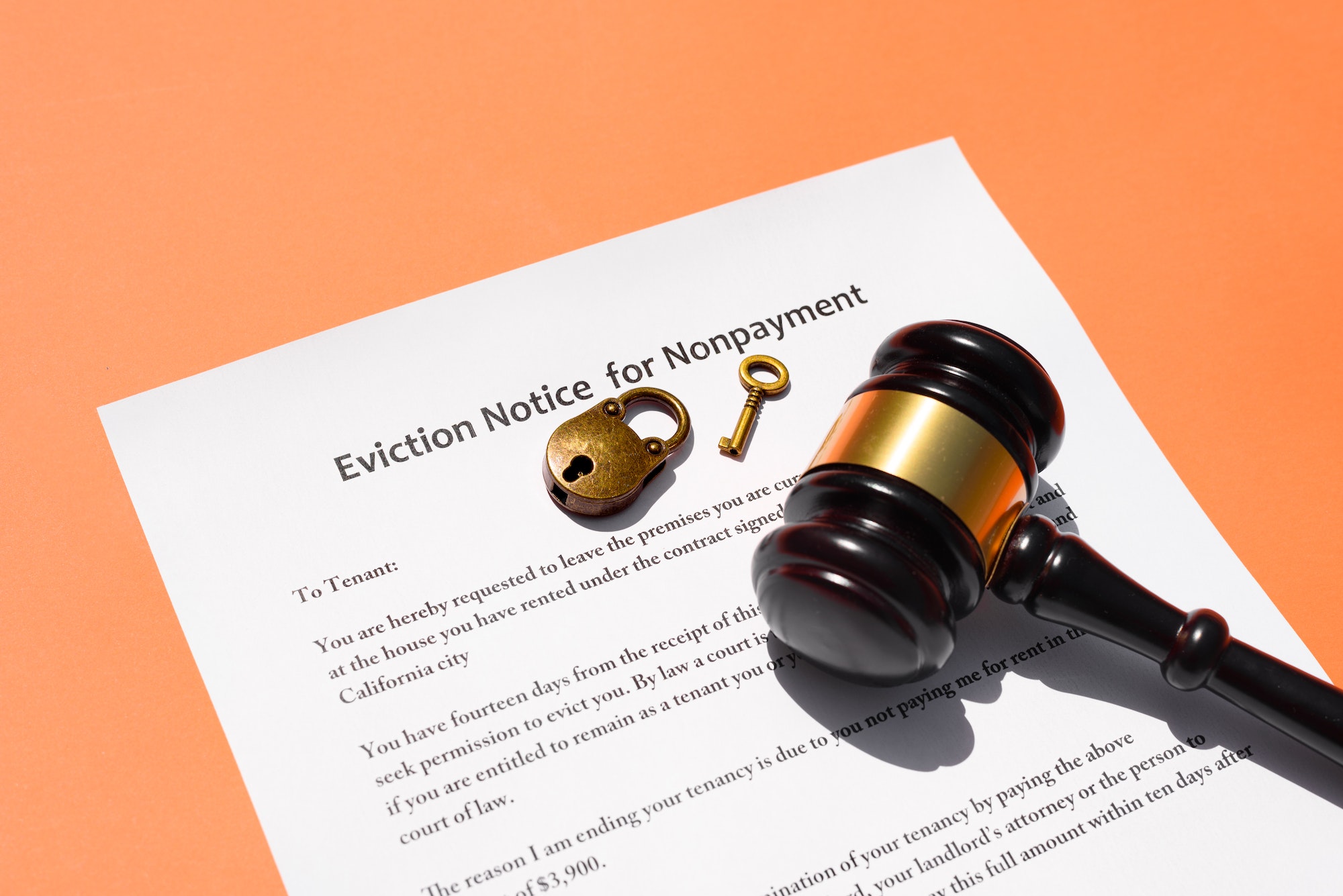
My tenant doesn’t pay the rent! How can I evict him?
Your tenant doesn’t pay the rent? How do you get paid? How do you get him evicted?
Use the online rental eviction procedure on the AGN avocats website, and get your tenant evicted for 990 euros, excluding bailiff’s fees.
Evict your tenant in 5 easy steps!
Step 1: Send a summons to pay to your tenant
Using a bailiff
You need to hire a bailiff to issue your tenant with a summons to pay. The summons to pay must refer to the resolutory clause in the lease for non-payment of rent and service charges.
You must wait two months – the time your tenant needs to pay – before you can take your case to court. The automatic termination clause only takes effect two months after an unsuccessful bailiff’s summons.
The cost of the bailiff
A bailiff’s summons to pay costs 30.89 euros (this rate is multiplied by 2 if the amount of rent to be recovered is greater than or equal to 1,280 euros).
Step 2: Seizing your tenant’s bank account
You can petition the juge de l’exécution (enforcement judge) of the tribunal de grande instance (“high court”) of your tenant’s place of residence to enforce a request for seizure of your tenant’s bank account. However, if you have a written lease, you can use a bailiff without seeking authorization from the enforcement judge (Article L. 511-2 of the French Code of Enforcement Procedure).
The seizure will be carried out by a bailiff, who will draw up an inventory of the tenant’s furniture. Your tenant’s furniture is then immobilized. Your tenant will not be able to move or withdraw money from his bank accounts.
Step 3: Submit an expulsion request to the judge
If your tenant doesn’t pay you, you’ll have to go to court to have him or her expelled.
If the rental contract contains a resolutory clause, you need to file a writ of summons.
You must summon the tenant to appear in summary proceedings before the local magistrate’s court. The judge will declare the lease terminated and demand payment of the rent arrears. Once the judge has issued the expulsion order, the tenant must be notified.
If the lease does not contain a resolutory clause
You must summon the tenant to appear before the district court. You will be summoned to a hearing, but it is possible that the tenant will request a postponement of the hearing, which will lengthen the duration of the rental expulsion procedure.
Once the hearing has taken place, the decision will not be handed down at the hearing, but the judge will set a date for deliberation, which will take place at least one month after the hearing.
The possibility for your tenant to ask the judge for a delay
Once the eviction order has been issued, the tenant can refer the matter to the enforcement judge, or ask the judge ordering the expulsion to grant additional time before proceeding with the eviction. The judge may grant such additional time whenever the tenant’s rehousing poses difficulties.
Step 4: Order to vacate the premises
Before actually evicting the tenant, you need to send him or her a notice to vacate by bailiff. The bailiff will serve the judgment and a notice to vacate on the person being evicted.
Once the eviction notice has been served, the tenant has 2 months to vacate the premises. You cannot evict your tenant before 2 months have elapsed from the date of the notice to vacate.
Step 5: Forced eviction, with possible recourse to the public forces
If your tenant has not vacated the premises within two months of receiving the notice to vacate, the bailiff will enforce the decision by evicting your tenant.
Beware of the winter truce period
No executions may be carried out before 6 a.m. or after 9 p.m., or on public holidays. No evictions may be carried out during the winter truce, and no rental evictions may be carried out from November 1 to March 31. Evictions can only be carried out from April 1 to October 30.
You can request an expulsion from the judge even during the winter period. The winter truce does not prevent you from starting eviction proceedings, but if you apply to the judge for eviction during this period, it is only the actual eviction that will be postponed.
Only a bailiff can carry out an expulsion, as they are the only public official qualified to enforce court orders.
Calling in the police
If the bailiff is unable to carry out the expulsion on his own, he must request the assistance of the police. You should ask the bailiff to summon the relevant police commissioner to call in the police to enforce the rental eviction order. If the commissioner refuses, you can ask the prefect of your department to call in the police.
Your tenant doesn’t pay the rent. You can obtain payment of unpaid rent and have your tenant expelled!
Use the online rental eviction procedure on the AGN avocats website, and get your tenant evicted for 990 euros, excluding bailiff’s fees!
For more information on rental eviction, AGN Avocats invites you to read the following articles:
- How to evict a tenant or squatter?






